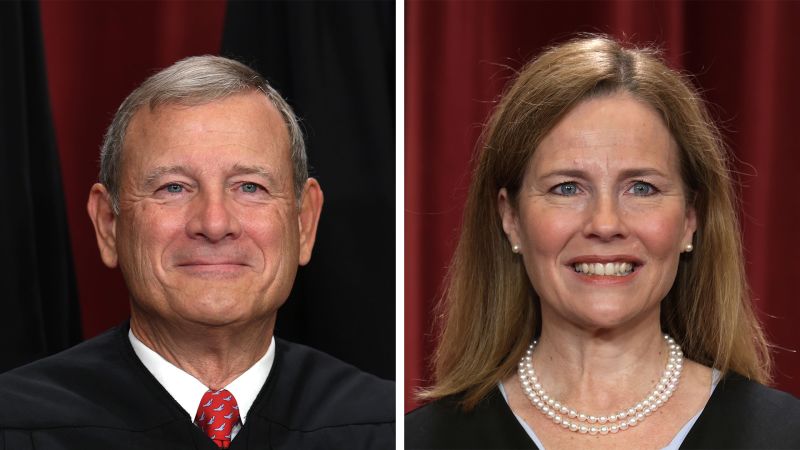
Chief Justice John Roberts often downplays his influence over the Supreme Court, lamenting his limited clout among his eight colleagues. “You can’t fire people if they don’t follow you. You can’t cut their pay,” he remarked to a group of federal judges, highlighting the challenges of his role. However, Roberts wields a significant power: the ability to assign opinions when he is in the majority, a position he held more than any other justice this term.
This power is crucial as the rationale behind a Supreme Court decision sets a precedent for future cases, influencing lower courts. The author of an opinion not only shapes the law but also gains personal prestige. Roberts, completing his 20th session on the high court, has strategically kept the most important cases for himself, particularly those involving presidential powers.
Roberts’ Strategic Assignments
Roberts’ influence extends beyond his vote, as he oversees oral arguments and runs closed-door conferences where justices discuss and vote on cases. By tradition, the most senior justice in the majority assigns the opinion, and Roberts, enjoying seniority over all, frequently determines the author of key decisions.
This term, Roberts was in the majority more than any other justice, assigning 54 of the 56 signed opinions. This strategic power allows him to influence outcomes and reward colleagues, sometimes assigning cases to cut against ideological expectations. A notable example occurred last Friday when Roberts assigned a major decision to Justice Amy Coney Barrett, a junior justice on the right wing.
A Surprise Assignment
The case in question involved President Donald Trump and sought to release him from numerous lower-court orders blocking his policies. Roberts’ decision to assign the opinion to Barrett was unexpected, as many presumed he would either keep it or assign it to a more senior justice. This move blunted criticism from Trump, who praised Barrett’s decision as “brilliantly written.”
Roberts’ choice strengthened his alliance with Barrett, a pivotal justice whom liberals have sought to sway towards the center. By assigning her this high-profile case, Roberts not only reinforced her standing but also showcased his strategic acumen.
The Power of Opinion Assignment
The assignment power has been a tool for chief justices to influence court outcomes. Chief Justice Warren Burger, for instance, often switched his vote to ensure he was in the majority, favoring colleagues who shared his ideology. His successor, William Rehnquist, was known for rewarding justices who wrote efficiently and avoided tangents.
Roberts, who succeeded Rehnquist in 2005, assigns opinions after each two-week sitting of oral arguments and conference votes. The public only learns of these assignments when final decisions are announced. Roberts has typically reserved significant cases for himself, particularly those involving executive branch clashes.
Roberts’ Influence on Court Dynamics
This term, Roberts assigned liberal Justice Ketanji Brown Jackson a “reverse discrimination” case and Justice Sonia Sotomayor a church-state clash, demonstrating his effort to distribute cases evenly among justices. Despite the politically charged disputes, there are numerous low-profile, non-ideological cases to balance the docket.
Statistics from SCOTUSblog show that of the 56 opinions, Barrett and fellow conservatives Clarence Thomas and Brett Kavanaugh each had seven; Roberts, Sotomayor, Samuel Alito, Elena Kagan, and Neil Gorsuch had six; and Jackson had five.
Barrett’s Emerging Role
A former Notre Dame law professor, Barrett was appointed by Trump in 2020. Her cautious yet effective approach has given her a significant role on the court, often casting decisive votes or drafting compromise rationales. Roberts has conspicuously assigned her major decisions, such as a dispute over Native American rights, which she wrote upholding a 1978 law favoring Native placements in custody proceedings.
Barrett’s recent opinion in the Trump case restricted district court judges’ authority to impose nationwide injunctions, a victory for Trump’s legal team. Her opinion drew on Justice Antonin Scalia’s originalist method, citing early American history to argue against universal injunctions.
“Nothing like a universal injunction was available at the founding, or for that matter, for more than a century thereafter,” Barrett wrote, echoing Scalia’s sentiment that such remedies pose potent risks.
Barrett’s ability to hold a majority and articulate complex legal arguments demonstrates her growing influence, positioning her as a key player in the court’s future dynamics.
As Roberts continues to navigate the complexities of the Supreme Court, his strategic assignments and alliances will likely shape the court’s direction in the years to come.





